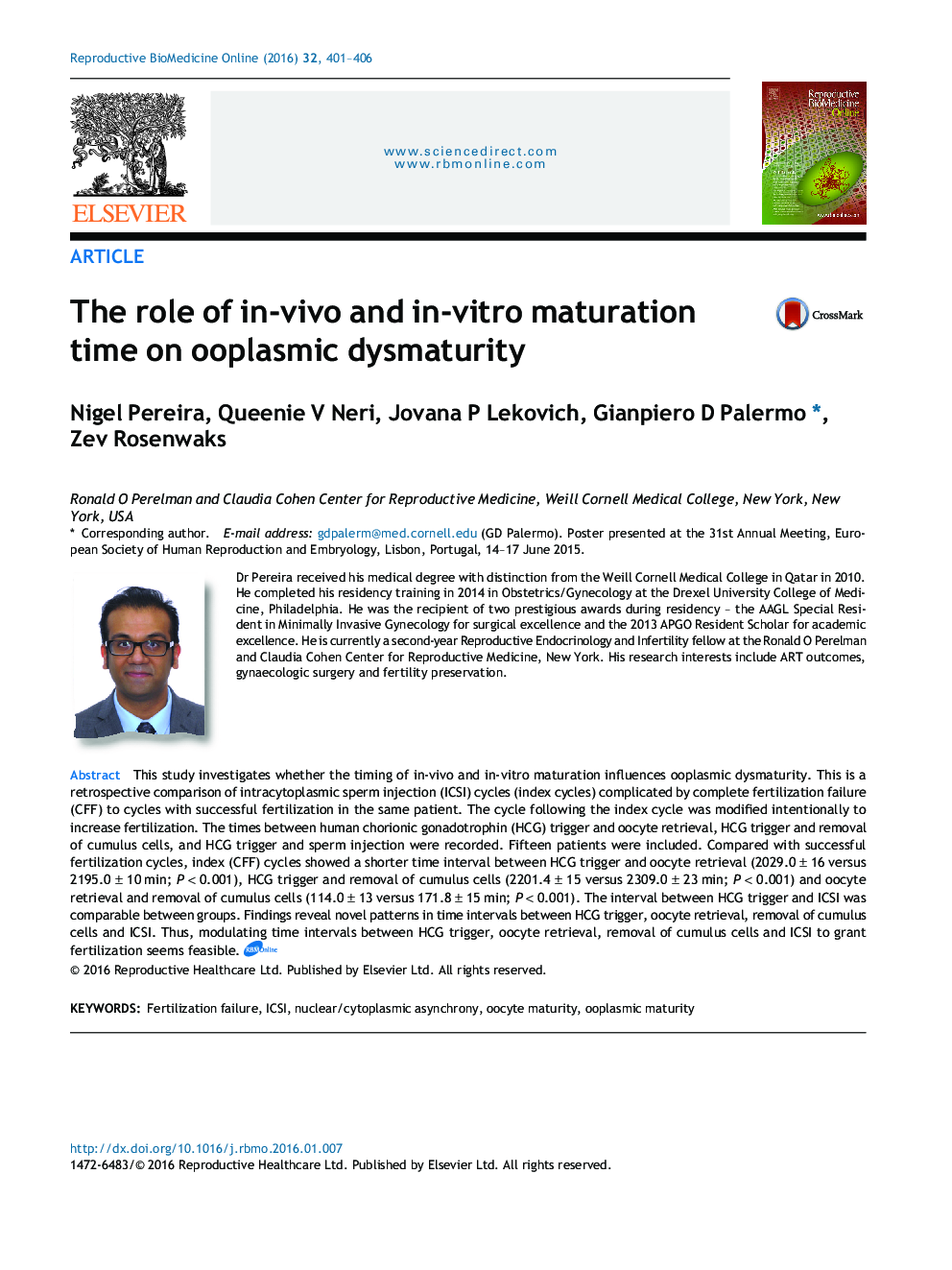| Article ID | Journal | Published Year | Pages | File Type |
|---|---|---|---|---|
| 3969951 | Reproductive BioMedicine Online | 2016 | 6 Pages |
This study investigates whether the timing of in-vivo and in-vitro maturation influences ooplasmic dysmaturity. This is a retrospective comparison of intracytoplasmic sperm injection (ICSI) cycles (index cycles) complicated by complete fertilization failure (CFF) to cycles with successful fertilization in the same patient. The cycle following the index cycle was modified intentionally to increase fertilization. The times between human chorionic gonadotrophin (HCG) trigger and oocyte retrieval, HCG trigger and removal of cumulus cells, and HCG trigger and sperm injection were recorded. Fifteen patients were included. Compared with successful fertilization cycles, index (CFF) cycles showed a shorter time interval between HCG trigger and oocyte retrieval (2029.0 ± 16 versus 2195.0 ± 10 min; P < 0.001), HCG trigger and removal of cumulus cells (2201.4 ± 15 versus 2309.0 ± 23 min; P < 0.001) and oocyte retrieval and removal of cumulus cells (114.0 ± 13 versus 171.8 ± 15 min; P < 0.001). The interval between HCG trigger and ICSI was comparable between groups. Findings reveal novel patterns in time intervals between HCG trigger, oocyte retrieval, removal of cumulus cells and ICSI. Thus, modulating time intervals between HCG trigger, oocyte retrieval, removal of cumulus cells and ICSI to grant fertilization seems feasible.
